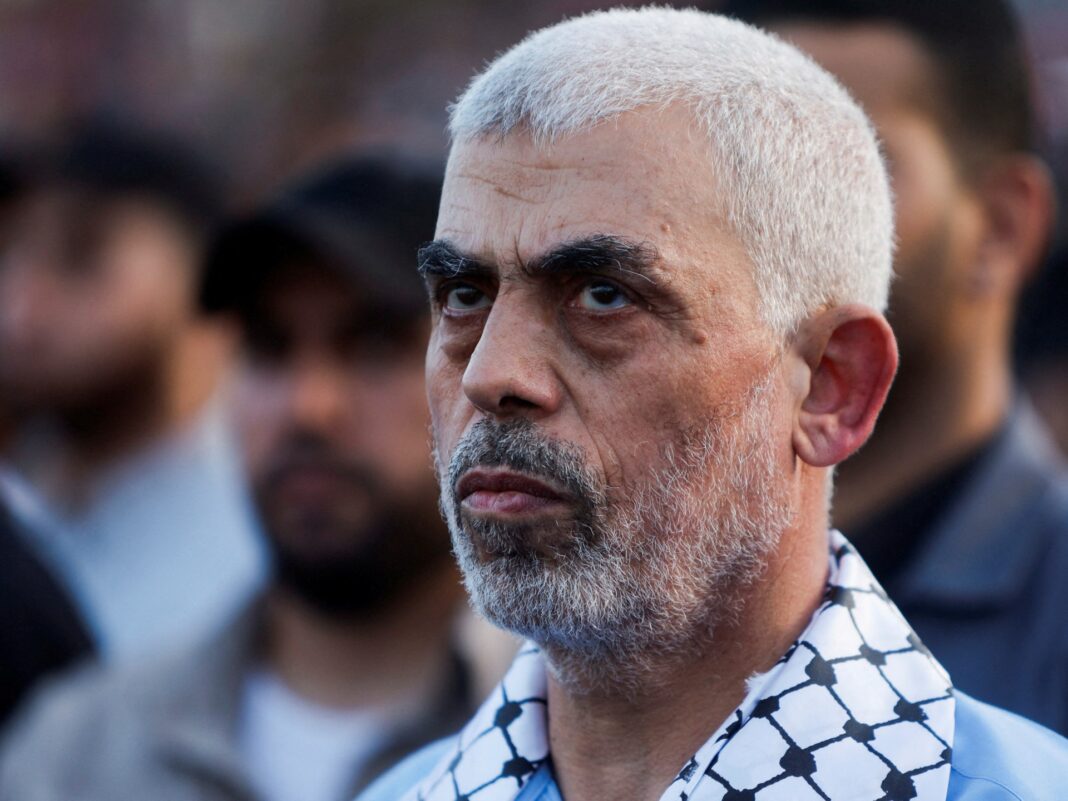On Thursday, October 17, Israel killed Hamas leader Yahya Sinwar in the Gaza Strip – the latest “high-value target” in a genocidal war that has dispensed with more than 42,000 Palestinian lives in just over a year and that has now spread to Lebanon.
Of course, the elimination of Sinwar hardly spells the end of genocide, as Israeli prime minister Benjamin Netanyahu made clear in his post-assassination announcement: “Today we have settled the score. Today evil has been dealt a blow, but our task has still not been completed.”
Fortunately for the powers that be in a nation whose very existence is predicated on perpetual slaughter, the Israeli “task” will never be fully completed – at least as long as there are still Palestinians and fellow Arabs committed to resisting Israel’s bloodthirsty efforts.
And yet Sinwar’s killing will make it ever more difficult for Israel to continue to justify its current war on Gaza, not that justification ever really matters to Israel’s primary international backer, the United States of America.
Indeed, US complicity in genocide has long entailed assistance in locating Sinwar; back in August, the New York Times reported that the Joe Biden administration had “poured vast resources into trying to find” the Hamas leader, providing “ground-penetrating radar” to Israel while also tasking US spy agencies “with intercepting Mr Sinwar’s communications.”
Like the September Israeli assassination in Beirut of Hezbollah’s iconic secretary general, Hassan Nasrallah, the killing of Sinwar is no doubt symbolic given the man’s track record of evading Israel’s deadly designs.
Over the past 12 months, Sinwar remained in the Gaza Strip and continued to lead military operations against Israel, exhibiting quite a bit more bravery than, say, a certain Israeli leader who prefers to jet around the world complaining about insufficient international support for mass killing.
Naturally, Sinwar has been roundly cast in the Western corporate media as a murderous demon bent on the destruction of Israel – since that’s the narrative that enables Israel to go about completing its, um, “task.”
Meanwhile, a glance at an excerpt from a 2018 interview with Sinwar reveals that the Hamas leader was rather more intent on building a Palestinian future than on destroying things: “I am not saying I won’t fight anymore… I am saying that I don’t want war anymore. I want the end of the [Israeli] siege [of Gaza]. You walk to the beach at sunset, and you see all these teenagers on the shore chatting and wondering what the world looks like across the sea. What life looks like. It’s breaking. And should break everybody. I want them free.”
Born in a refugee camp in Gaza and imprisoned by Israel for more than two decades for the crime of fighting for Palestinian land that was violently appropriated by Israel, Sinwar was acutely aware of the Israeli-imposed limits to Palestinian “freedom.”
Obviously, these limits are now particularly pronounced. Forget walking to the beach in Gaza at sunset to observe Palestinian teenagers wondering what life is like in places that are not under permanent Israeli siege and intermittent maniacal bombardment.
Nowadays, you’re perhaps more liable to observe Palestinian teenagers being burned alive during Israeli attacks on Gaza hospitals.
And while Israel may have dispensed physically with a key anti-Zionist resistance figure, it is consciously engendering ever greater resistance – without which, of course, the lucratively blood-soaked Israeli enterprise cannot ultimately flourish.
As per the aforementioned August report in the New York Times, US officials were convinced at the time that the killing or capture of Yahya Sinwar would provide Netanyahu with “a way to claim a significant military victory and potentially make him more willing to end military operations in Gaza.”
But as Netanyahu himself has now specified, Israel may have “settled the score” with Sinwar, “but our task has still not been completed.”
When Israel assassinated Sinwar’s predecessor Ismail Haniyeh in July, Reuters noted that Haniyeh had been “seen by many diplomats as a moderate compared with the more hardline members” of Hamas. As if we needed any more evidence of Israel’s total lack of interest in peace.
As for the United States’ interest in peace, following yesterday’s assassination of Sinwar Biden released an enthusiastic statement patting himself on the back for having “directed [US] Special Operations personnel and our intelligence professionals to work side-by-side with their Israeli counterparts to help locate and track Sinwar and other Hamas leaders hiding in Gaza.”
According to Biden, this was the equivalent of the 2011 assassination of Osama bin Laden – and “a good day for Israel, for the United States, and for the world.”
But a day that’s good for genocide isn’t really a good day at all.
The views expressed in this article are the author’s own and do not necessarily reflect Al Jazeera’s editorial stance.







